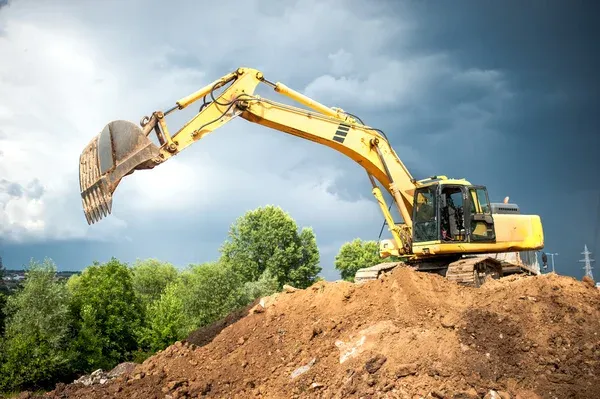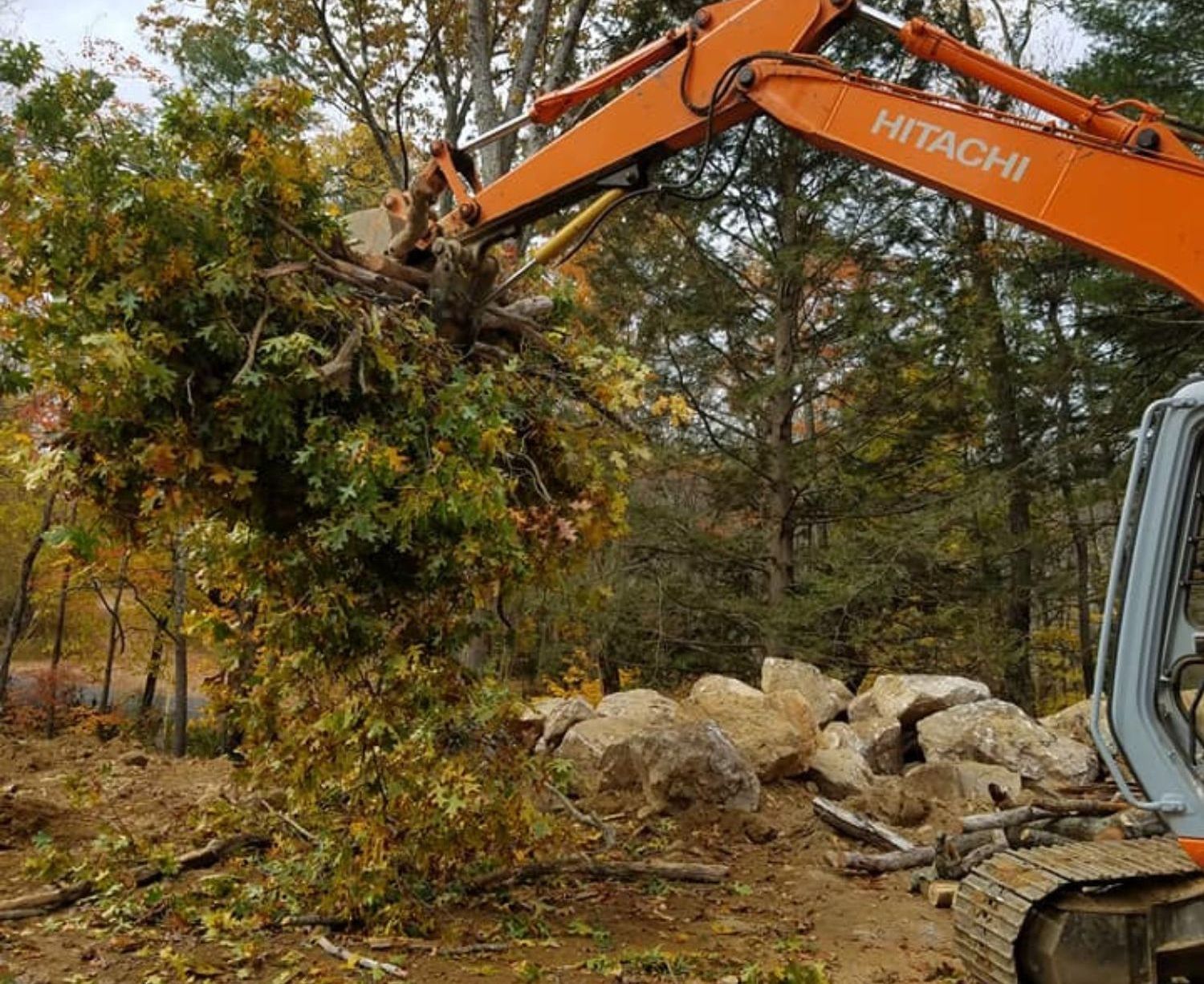Massachusetts Excavation for Building Renovation Projects: Preparing Sites for Upgrades
Best Preparation Practices for Renovation

Renovating existing buildings is a common practice in Massachusetts, where historical preservation and modernization often go hand in hand. Whether it's restoring a historic landmark or updating a commercial property for contemporary use, excavation plays a crucial role in preparing sites for renovation projects. In this blog post, we'll delve into the significance of excavation in building renovation projects in Massachusetts:
The Importance of Excavation in Building Renovation
Before the renovation work can begin, the site must undergo thorough preparation, which often involves excavation. Excavation sets the foundation for the entire renovation project, ensuring that the site is properly cleared, graded, and stabilized to accommodate the planned upgrades. Whether it's creating space for new foundations, utility lines, or underground structures, excavation lays the groundwork for successful building renovations in Massachusetts.
Site Assessment and Planning: The first step in any building renovation project is conducting a comprehensive site assessment to evaluate the existing conditions and identify any potential challenges. Excavation contractors work closely with architects, engineers, and property owners to assess the site's topography, soil composition, drainage patterns, and existing infrastructure. This information helps determine the scope of excavation work required and informs the development of an excavation plan tailored to the specific needs of the project.
Clearing and Demolition: In many building renovation projects, the existing structures or features on the site may need to be cleared or demolished to make way for the planned upgrades. Excavation contractors use heavy machinery and equipment to safely remove debris, demolish structures, and clear the site of any obstacles that could impede construction. Proper demolition and clearing are essential to creating a clean slate for the renovation work to proceed smoothly.
Foundation Preparation: Excavation plays a critical role in preparing the site for new foundations or footings required as part of the renovation project. Excavation contractors carefully excavate the soil to the specified depths and dimensions, ensuring that the foundation will be structurally sound and capable of supporting the renovated building. Proper foundation preparation is crucial to the long-term stability and integrity of the structure, making it a top priority in building renovation projects.
Utility Installation and Upgrades: Many building renovation projects in Massachusetts involve updating or installing new utility infrastructure, such as water lines, sewer systems, electrical conduits, and telecommunications networks. Excavation contractors work alongside utility companies and subcontractors to excavate trenches, lay pipes, and install conduits, ensuring that the site is properly equipped to meet the building's needs. Coordinating utility installation with excavation activities is essential to avoid conflicts and minimize disruptions during the renovation process.
Site Grading and Drainage: Proper site grading and drainage are essential components of building renovation projects, particularly in Massachusetts, where heavy rainfall and snowmelt can pose significant challenges. Excavation contractors use grading equipment to shape the terrain, ensuring that the site slopes away from the building to prevent water from pooling around the foundation. Additionally, excavation may be required to install drainage systems, such as French drains or stormwater management facilities, to channel water away from the site and protect the building from water damage.
Environmental Considerations: In Massachusetts, where environmental regulations are stringent, excavation contractors must adhere to strict guidelines to minimize the impact of their activities on the surrounding environment. This may include implementing erosion control measures, managing sediment runoff, and properly disposing of excavated materials. Excavation contractors work closely with environmental consultants and regulatory agencies to ensure compliance with all applicable laws and regulations, safeguarding the natural resources and ecosystems surrounding the renovation site.
Safety Measures: Excavation work poses inherent risks to workers and bystanders, making safety a top priority on building renovation projects. Excavation contractors follow strict safety protocols and procedures to protect personnel and prevent accidents on the job site. This may include conducting pre-work safety assessments, providing training and personal protective equipment to workers, and implementing measures to prevent cave-ins, collapses, and other excavation hazards. By prioritizing safety, excavation contractors ensure that building renovation projects proceed smoothly and without incident.
What Role Does Site Assessment Play In Determining The Scope Of Excavation Work For Renovation Projects?
Site assessment plays a pivotal role in determining the scope of excavation work for renovation projects in Massachusetts. Before any excavation begins, a comprehensive evaluation of the site is conducted to gather crucial information about the existing conditions and potential challenges that may affect the renovation process. The site assessment involves a thorough examination of various factors, including the topography, soil composition, drainage patterns, and existing infrastructure. By analyzing these elements, contractors can gain valuable insights into the unique characteristics of the site and identify any issues that may need to be addressed during excavation.
Primary Consideration in Site Assessment
Topography is one of the primary considerations in site assessment. Understanding the contours and elevation of the land helps contractors determine how excavation will impact the landscape and where earthmoving activities may be necessary. Additionally, identifying any natural features such as hills, slopes, or water bodies allows contractors to plan excavation activities accordingly and minimize environmental impacts.
Finally, the assessment of existing infrastructure, such as utility lines, underground utilities, and existing buildings, is crucial to avoid conflicts and ensure the safety of excavation operations. Identifying the location of underground utilities helps prevent accidental damage during excavation, while assessing the condition of existing structures allows contractors to plan demolition and clearing activities effectively. Overall, site assessment provides essential information that guides decision-making and planning throughout the excavation process. By conducting a thorough evaluation of the site, contractors can accurately determine the scope of excavation work required for renovation projects and develop strategies to address any challenges effectively.
Excavation plays a vital role in building renovation projects in Massachusetts, laying the groundwork for successful upgrades and transformations. From site assessment and planning to foundation preparation, utility installation, and environmental compliance, excavation contractors are essential partners in the renovation process.
You might also like
Book a Service Today
We will get back to you as soon as possible
Please try again later
Quick & Reliable
Prompt, Dependable, Prepared – Anytime, Any Service!
Location
Call
All Rights Reserved | Groundscapes Inc. | Website Managed by Leads By Vinny



